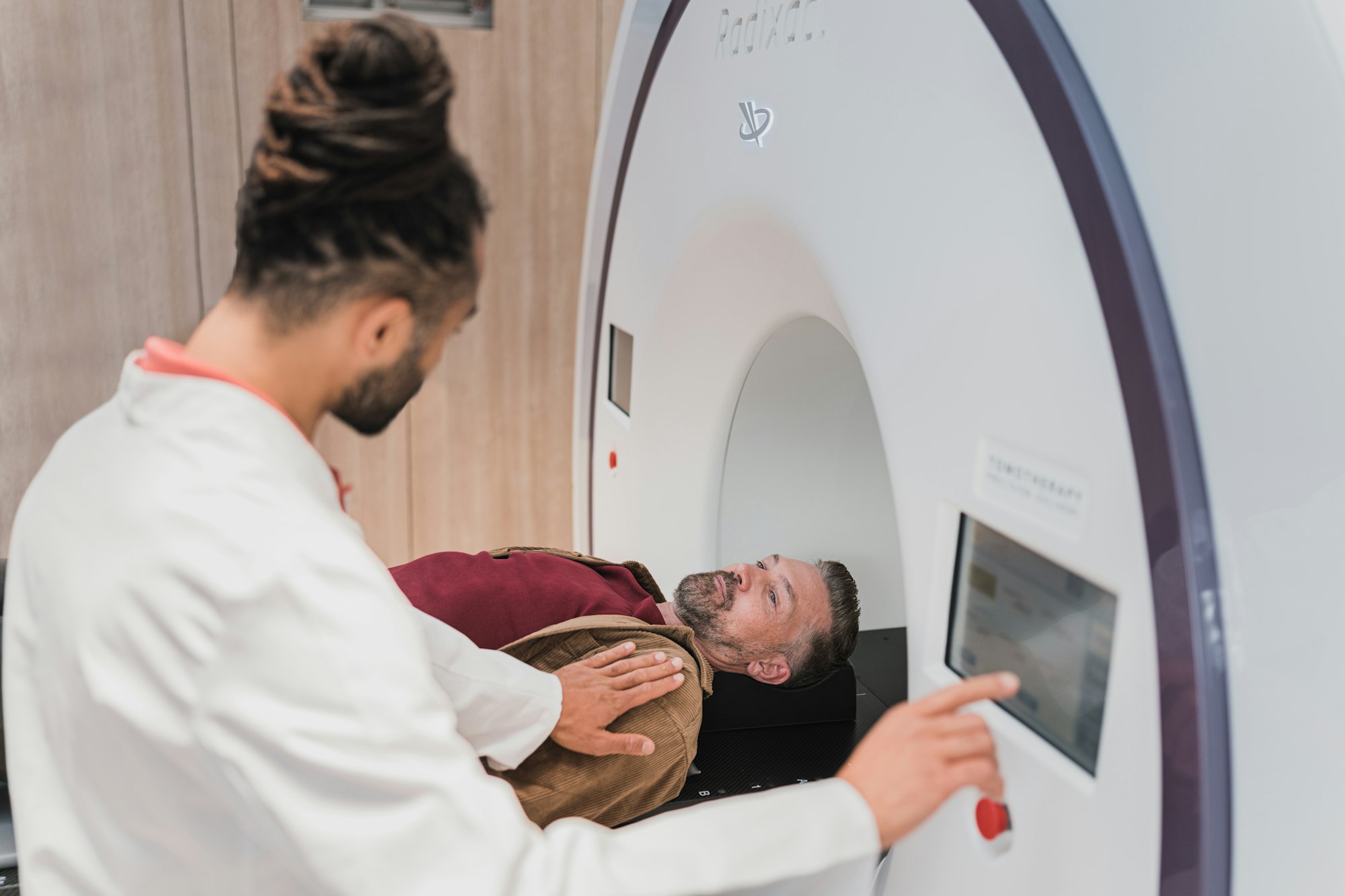Understanding Dementia Treatment and Options for Care
A comprehensive guide exploring diagnostic methods, medical treatments, and supportive strategies for dementia. It emphasizes early intervention, lifestyle adjustments, and the importance of tailored care plans to enhance patient quality of life.

Introduction to Dementia
Dementia is a complex neurological condition that affects millions of people worldwide. It impairs cognitive functions, affecting memory, thinking, and social abilities. Understanding the nature of dementia and exploring effective treatments are crucial for enhancing the quality of life for those affected.
Assessment and Diagnosis
Proper dementia treatment begins with a thorough assessment. Often, family members are the first to notice symptoms, although they can sometimes be subtle. The accuracy of dementia tests depends on various factors, such as the type of dementia, the brain areas affected, the testing environment, and the skill of the healthcare provider administering the test.
Diagnostic Tests for Various Types of Dementia
Diagnosing dementia involves a combination of different tests and assessments, each playing a crucial role in determining the specific type of dementia and its progression.
Here's a closer look at the diagnostic tests commonly used for various types of dementia:

Neuroimaging Techniques
Neuroimaging is vital in diagnosing dementia, helping to identify changes in the brain structure or function.
Computerized Tomography (CT) Scans: CT scans are used to check for evidence of strokes or bleeding and to rule out other conditions like brain tumors. They are particularly useful in diagnosing vascular dementia.
Magnetic Resonance Imaging (MRI): MRI provides a more detailed image of the brain than CT scans. They are effective in identifying brain shrinkage in Alzheimer's disease and can detect vascular damage indicative of vascular dementia.
Positron Emission Tomography (PET) Scans: PET scans are used to observe metabolic processes in the brain. In Alzheimer's disease, PET scans can detect amyloid plaques. For other dementias, like Frontotemporal dementia, PET scans can show where in the brain the most significant damage is occurring.
Cognitive and Neuropsychological Tests
These tests assess memory, problem-solving, attention, counting, and language skills.
Mini-Mental State Examination (MMSE): A brief 30-point questionnaire test that is used to screen for cognitive impairment.
Montreal Cognitive Assessment (MoCA): Similar to MMSE but more sensitive in detecting mild cognitive impairment and early Alzheimer's disease.
Clock Drawing Test: Used to assess visual-spatial and executive functioning, which can be particularly affected in conditions like Lewy Body dementia.

Laboratory Tests
Blood tests and other laboratory tests help rule out other causes of cognitive impairment.
Blood Tests: These can check for vitamin deficiencies, thyroid issues, or metabolic problems that might mimic dementia.
Spinal Fluid Analysis: Particularly useful in Alzheimer's diagnosis, as it can reveal amyloid and tau protein levels characteristic of Alzheimer's disease.
Psychiatric Evaluation
This helps determine if depression or another mental health condition is contributing to the symptoms.
Genetic Testing
While not routinely done, genetic testing can be significant, especially if there's a family history of dementia. This is particularly relevant for forms of dementia that have a strong genetic link, like some types of Frontotemporal dementia.

Functional Assessments
These assess the ability to perform daily activities, which helps in determining the impact of cognitive impairment on daily living.
Each of these diagnostic tests contributes to a comprehensive assessment, helping healthcare providers differentiate between types of dementia and tailor treatment approaches accordingly. It's important to note that the diagnosis is often a process of elimination, ruling out other conditions and determining the most likely type of dementia based on a combination of test results, symptoms, and medical history.
Breaking News Blood Test to Diagnose Alzheimer's Disease
Challenges in Testing for Dementia
Diagnosing dementia is a complex process, and various factors can influence the outcomes of the tests conducted. Here are some of the key challenges in testing for dementia:
Patient's Ability to Read and Language Barriers
Literacy: Tests that require reading or writing can be challenging for patients with low literacy levels. This can lead to misinterpretation of their cognitive abilities.
Language: Patients who are not fluent in the language in which the test is administered may struggle, leading to inaccurate results. It’s crucial to provide testing in the patient's primary language when possible.
Educational Background
Educational Bias: Standard cognitive tests may be biased towards people with certain educational backgrounds. For instance, individuals with higher education might perform better on certain cognitive tasks despite having cognitive impairments.
Adjusting for Education Levels: Some tests try to account for this by adjusting scoring based on education levels, but this isn’t always a perfect solution.
Cultural Differences
Cultural Relevance: Test questions may be culturally biased, assuming certain knowledge or experiences that are not universal. For example, a memory test that asks about details from a story or objects that are not culturally familiar can yield misleading results.
Cultural Sensitivity: It’s important for tests to be culturally sensitive and applicable to diverse populations to ensure accurate assessments.

Overall Health
Physical Health: Conditions like poor vision or hearing, motor skills impairments, and other physical health issues can affect a person's ability to perform well in tests, leading to false indications of cognitive impairment.
Mental Health: Mental health conditions such as depression or anxiety can also mimic or exacerbate symptoms of dementia, complicating the diagnostic process.
Screening vs. Diagnostic Tools
Purpose of Tests: Many cognitive tests are designed for screening purposes, to identify individuals who may need further evaluation. They are not definitive diagnostic tools.
Follow-up Assessments: If screening tests indicate potential cognitive impairment, more comprehensive evaluations and possibly repeat assessments over time are necessary to arrive at an accurate diagnosis.
The challenges in testing for dementia highlight the need for a comprehensive, multi-faceted diagnostic approach. This approach should consider the individual's cultural, educational, and linguistic background, as well as their physical and mental health status. It’s crucial for healthcare providers to interpret test results within the broader context of the individual's life and health history to ensure an accurate diagnosis.
Cognitive Tests to Diagnose Types of Dementia
Therapies for Dementia
Therapeutic interventions are integral to the treatment and management of dementia. These therapies aim to improve quality of life, maintain functional abilities, and address specific symptoms associated with dementia. Here's an overview of some key therapies used in dementia care:
Cognitive Behavioral Therapy (CBT)
Addressing Behavioral Issues: CBT is effective in managing depression, anxiety, and other behavioral issues that often accompany dementia.
Techniques and Strategies: It involves teaching coping strategies, modifying negative thought patterns, and providing tools to manage distressing symptoms.
Tailoring to Cognitive Abilities: For dementia patients, CBT is often modified to suit their cognitive abilities, with a focus on simplicity and repetition.
Occupational Therapy
Maintaining Independence: Occupational therapy helps dementia patients maintain their independence and perform daily activities for as long as possible.
Adapting Environments: Therapists work to adapt the living environment of the patient to improve safety and facilitate easier navigation.
Customized Activities: Activities are customized to the individual's abilities and interests, focusing on enhancing life skills and providing a sense of achievement.

Physical Therapy
Mobility and Strength: Physical therapy focuses on maintaining mobility, balance, and strength, which are crucial for preventing falls and other physical complications.
Exercise Programs: Tailored exercise programs can help slow down the physical decline often seen in dementia, improving overall well-being.
Joint Health and Flexibility: Regular physical activity helps in maintaining joint health and flexibility, which is important for patients’ overall mobility and comfort.
Music and Art Therapy
Non-Verbal Expression: These therapies allow patients to express themselves in non-verbal ways, which can be particularly beneficial as verbal communication skills decline.
Emotional and Cognitive Stimulation: Engaging in music and art can provide emotional comfort, stir memories, and stimulate cognitive processes.

Reminiscence Therapy
Stimulating Memory: Involves discussing past activities, events, and experiences, often using tangible prompts like photos, familiar objects, or music.
Enhancing Mood and Well-being: This therapy can improve mood, reduce agitation, and enhance the patient’s sense of identity and self-worth.
Aromatherapy and Sensory Stimulation
Relaxation and Calm: Essential oils and sensory stimulation can be used to promote relaxation and reduce agitation in dementia patients.
Tailored Sensory Experiences: Activities like hand massage with scented oils or exposure to calming sounds and visuals can provide comfort.
Speech-Language Therapy
Communication Skills: As dementia progresses, speech-language therapy can help maintain communication abilities for as long as possible.
Swallowing Difficulties: It also addresses swallowing difficulties that might arise in later stages of the disease.
Dietary Management
Nutritional Needs: Ensuring proper nutrition is vital, as dietary needs can change and feeding difficulties may arise.
Hydration and Meal Planning: Strategies include addressing hydration, creating appealing meal choices, and ensuring a balanced diet.
Therapies for dementia are diverse, each addressing different aspects of the condition. A multidisciplinary approach, involving a range of therapeutic interventions tailored to individual needs, is essential for effective dementia care. The goal is to maximize the patient's quality of life, maintain their independence for as long as possible, and provide support in managing the various challenges that dementia brings.

Early Dementia Treatment
Early diagnosis and treatment of dementia are crucial, as they can significantly influence the course of the disease. Interventions in the initial stages can slow progression, help manage symptoms more effectively, and maintain a higher quality of life. Here's an overview of the key aspects of early dementia treatment:
Pharmacological Interventions
Cholinesterase Inhibitors: Medications such as donepezil, rivastigmine, and galantamine are often prescribed in the early stages of Alzheimer's disease. These drugs work by increasing levels of a chemical messenger involved in memory and judgment.
Memantine: Used to treat moderate to severe Alzheimer's disease, this medication works by regulating the activity of glutamate, a different chemical messenger involved in brain functions.
Lifestyle Modifications
Cognitive Stimulation: Activities that stimulate the brain, such as puzzles, reading, or learning new skills, can help maintain cognitive function.
Physical Activity: Regular exercise has been shown to have a protective effect on brain health and can slow cognitive decline.
Diet: A heart-healthy diet, like the Mediterranean diet, which is rich in fruits, vegetables, whole grains, and lean proteins, can contribute to overall brain health.
Social Engagement: Staying socially active can help ward off depression and stress, both of which can contribute to the progression of dementia.
Management of Comorbid Conditions
Chronic Disease Management: Proper management of conditions like diabetes, hypertension, and heart disease is important, as these can impact dementia progression.
Mental Health: Addressing anxiety, depression, or sleep disorders can help improve quality of life and potentially slow down dementia progression.

Supportive Therapies and Care
Counseling and Education: For both the patient and their family, understanding the disease and learning strategies to manage it are key.
Occupational Therapy: Early intervention with occupational therapy can help adapt the living environment to improve safety and independence.
Support Groups: These can provide emotional support and practical advice for both dementia patients and their caregivers.
Regular Monitoring and Assessment
Ongoing Assessments: Regular follow-ups with healthcare providers are essential to monitor the progression of the disease and adjust treatments as needed.
Cognitive Testing: Periodic cognitive testing can help track changes in cognitive abilities over time.
Legal and Financial Planning
Early Planning: Discussing and arranging legal and financial matters early in the disease process is crucial. This includes setting up power of attorney, living wills, and care plans for the future.
Early treatment of dementia is multifaceted, combining medical interventions with lifestyle changes, supportive therapies, and planning for the future. The focus is on slowing the progression of the disease, maintaining cognitive function and independence, and ensuring the highest possible quality of life. Early and proactive management can make a significant difference in the trajectory of dementia, benefiting both the patient and their caregivers.

Support for Dementia Patients
Support for dementia patients encompasses a wide range of strategies and interventions, aimed at ensuring their comfort, safety, and quality of life. This support is a combination of medical care and caregiving tactics, tailored to the evolving needs of the individual with dementia.
Medical Support
Regular Medical Care: Ongoing medical supervision is necessary to monitor the progression of dementia, manage any co-existing health conditions, and adjust treatments as needed.
Medication Management: Ensuring that the patient is taking their medications correctly and managing any side effects is crucial.
Specialist Consultations: Depending on the symptoms and progression of the disease, consultations with neurologists, psychiatrists, or geriatricians may be necessary.
Caregiving Strategies
Daily Routine: Establishing a consistent daily routine can help reduce confusion and anxiety for dementia patients.
Safe Environment: Modifying the home environment to prevent falls and injuries is important. This may include installing grab bars, removing trip hazards, and ensuring good lighting.
Activity Engagement: Engaging the patient in simple, meaningful activities that they enjoy can enhance their mood and self-esteem.
Emotional Support
Compassionate Communication: Using simple, clear sentences, maintaining eye contact, and showing patience and understanding can help in effective communication.
Validation Therapy: Acknowledging the patient's feelings and experiences, even if they are based on memory impairments, can provide comfort and reduce distress.
Behavioral Management
Understanding Triggers: Identifying and addressing the triggers of behavioral symptoms like agitation, aggression, or wandering is essential.
Non-Pharmacological Interventions: Techniques such as music therapy, aromatherapy, or pet therapy can be effective in managing challenging behaviors.

Nutrition and Hydration
Balanced Diet: Ensuring the patient has a nutritious diet that meets their dietary needs and preferences is key.
Assistance with Eating: Patients may require assistance with eating, and adaptations may be needed for those with swallowing difficulties.
Personal Care
Assistance with ADLs: As the disease progresses, patients will need more help with activities of daily living (ADLs) such as bathing, dressing, and grooming.
Dignity and Respect: Maintaining the patient's dignity during these activities is vital.
Caregiver Support
Education and Training: Caregivers should be educated about dementia and trained in caregiving skills.
Respite Care: Taking regular breaks is important for caregivers to avoid burnout. Respite care services can provide temporary relief.
Social Support
Support Groups: These can provide emotional support and practical advice for caregivers and families.
Community Resources: Utilizing available community resources, such as adult day care centers, can provide additional support.
Supporting a person with dementia requires a comprehensive approach that addresses both their medical and emotional needs. Caregivers play a critical role in this process and need support and resources to provide effective care. The goal is to maintain the highest possible quality of life for the person with dementia, while also ensuring the well-being of their caregivers.
Lifestyle Changes and Dementia
Lifestyle changes are increasingly recognized as crucial in managing dementia. While they can't cure the disease, they can play a significant role in improving quality of life and may even slow the progression of cognitive decline. Here's a deeper look at the key lifestyle changes beneficial for people with dementia:

Healthy Diet
Balanced Nutrition: A diet rich in fruits, vegetables, whole grains, and lean proteins is recommended. The Mediterranean diet, in particular, has been associated with a lower risk of cognitive decline.
Omega-3 Fatty Acids: Foods high in omega-3 fatty acids, like fish, are believed to support brain health.
Hydration: Ensuring adequate hydration is important, as dehydration can worsen confusion and cognitive function.
Regular Exercise
Physical Activity: Regular physical activity, even moderate exercise like walking, can improve mood, maintain muscle strength, enhance circulation, and support overall brain health.
Balance and Coordination: Exercises that focus on balance and coordination can help prevent falls, which are a common concern in people with dementia.
Cognitive Stimulation
Mental Exercises: Activities like puzzles, memory games, reading, or engaging in hobbies can stimulate the brain and may help slow cognitive decline.
Learning New Skills: Encouraging the learning of new simple skills or engaging in new hobbies can provide mental stimulation.
Social Engagement
Maintaining Relationships: Keeping up social interactions with friends and family can provide emotional support and mental stimulation.
Community Activities: Participating in group activities or community programs designed for seniors can help maintain social connections.
Sleep Hygiene
Regular Sleep Patterns: Maintaining regular sleep patterns is important, as sleep disturbances can exacerbate dementia symptoms.
Sleep Environment: Creating a comfortable, quiet, and safe sleep environment can help improve sleep quality.
Stress Reduction
Relaxation Techniques: Practices like mindfulness, meditation, or gentle yoga can help reduce stress and improve overall well-being.
Routine: Establishing a daily routine can provide a sense of structure and reduce anxiety.
Conclusion
Lifestyle changes are a vital part of dementia management. They complement medical treatments and therapies, helping to enhance the quality of life for those with dementia. These changes are not only beneficial for patients but also for caregivers, as they can improve the caregiving experience and the overall health of both parties. Effective dementia treatment is indeed multifaceted, requiring early diagnosis, a tailored approach to care, and close collaboration between healthcare providers, patients, and caregivers. Adopting these lifestyle changes can be a positive and empowering way for individuals with dementia and their families to manage the condition and maintain a sense of control and dignity in their lives.
Cognitive tests and explain what skills or cognitive deficits each one is measuring.
St Louis University Mental Status Exam
Our Resources section can help you find the information and tools that you need. We have courses, videos, checklists, guidebooks, cheat sheets, how-to guides and more.
You can get started by clicking on the link below. We know that taking care of a loved one is hard work, but with our help you can get the support that you need.
Click here to go to Resources Section now!
You might also like this article:













